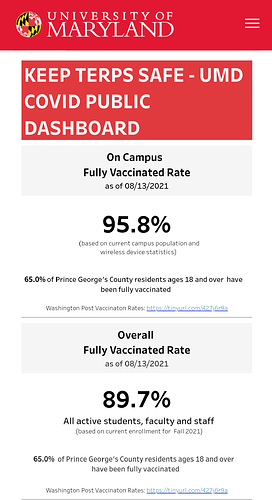Please step back and reflect on what you want people to endure and risk in order to provide something you want for your child, what you think they owe you along those lines, and how you came to that level of entitlement. How in fact you regard them and their humanity relative to your own.
My kid had a small breakdown last night at the thought of possibly having to go online again. She’s missed, as they’ve all missed, so much. As she pointed out a few weeks ago, this has gone on for ten percent of her life now. It’s many, many times worse for the kids next door, one of whom does not remember a time before the pandemic, and was so excited about starting kindergarten and playing with lots of other kids.
These are serious and terrible problems with long-term consequences. But I would still not ask my colleagues to come in and risk serious long-term illness, disability, impoverishment, loss of longterm quality of their own lives, danger to their own families, and so on in order to teach my daughter in a room, rather than on a screen. Nor am I stomping around waving my arms and demanding that her university refund all the money. My money is harder-earned than yours and I have less of it. I’ve worked harder than you have to ensure that a kid can go to college without the usual debt necklace that lowish-income kids come out with. But I also understand that we’re not the only ones here, and that in ten years other kids will also need to go to college, which means the colleges will need to be there for them. So yes, I pay.
The calculus is somewhat different for very young children, whose harms from this will, I think, fade much less easily. These experiences and losses will mark my daughter, and all young adults. But they will be foundational for young children. And there I can see the elementary teachers risking it for them.
I hope, but expect to be disappointed, in your response in supporting those people when inevitably some of them become seriously ill and it has major effects on their lives. The people demanding most insistantly that teachers to get in there and serve their kids also seem to be the people readiest to decide that these “essential workers” are slackers grifting away on the system, overpaid at the best of times. Again, I would suggest you step back and reflect on how you view your relative humanity and where your sense of entitlement and responsibility to those people come from.

